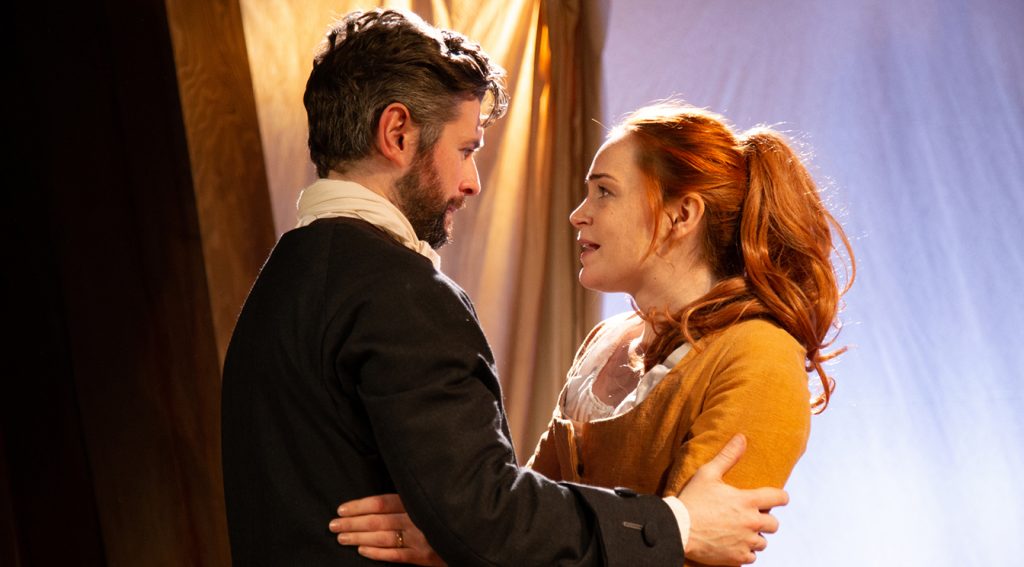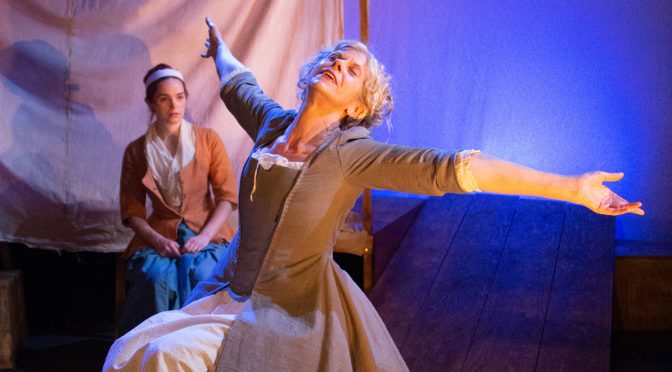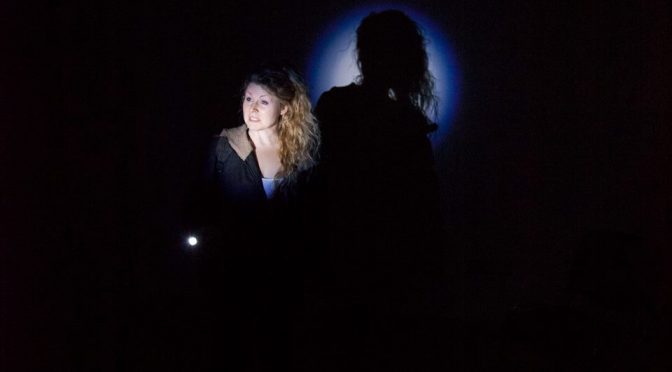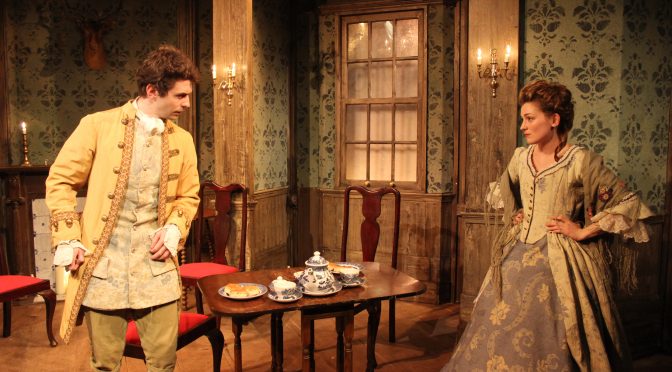There’s a lot going on in Sue Glover’s historical drama. The true history of an imprisoned noblewoman is told alongside the story of a newly married missionary and his young wife. Meanwhile the setting, a remote island steeped in paganism, elaborates on themes of religion and power. If the script is disjointed – an odd mix of romance and intrigue – The Straw Chair is always interesting.
First the location (the jail of Lady Rachel Grange as well as the parish needing a priest), the Hebridean island of St Kilda, is a character it its own right. Embodied by the only local we meet, Oona, played with great charm by Jenny Lee, there is a lot of anthropological detail. Might the role have a touch more drama? Should we be suspicious of Oona’s role as jailer? Nonetheless, her love of the island is evocative.
To hell, to Hades, to Kilda
For Lady Rachel, kidnapped and carted off to a house with only one chair, it is understandable and amusing that she hates St Kilda. In a commanding performance, Siobhan Redmond makes this great character fascinating as she plays with degrees of madness. She isn’t a figure of sympathy – her snobbery ensures that – but, as a mix of Mrs Rochester and Lady Macbeth, Redmond ensures the character has the required magnetism. It is to the credit of all, not least director Polly Creed, that the role doesn’t swamp the play.

Lady Rachel’s relationship with the newly wed Isabel could be elaborated on. It’s another strong performance – from Rori Hawthorn – but I wonder if the young woman is too naïve – and her growing affection for the island a little pat? The character is fuller when it comes to her relationship with her husband, the missionary Aneas, a role that benefits from a final strong performance, this time from Finlay Bain. The “rigid piety” of the aspiring churchman is offset by a convincing sense of religiosity and a nervousness around his young wife that Bain depicts expertly.
The play’s conclusion is wilfully frustrating. We don’t know what will happen to Lady Rachel or the couple whose marriage is tumultuous – little bodes well despite Bain and Hawthorn’s chemistry. And the minister’s conversion to Lady Rachel’s cause is so quick that it seems clumsy. This trip to this island feels rushed, but it is still a journey worth making.
Until 14 May 2022
Photos by Carla Joy Evans



